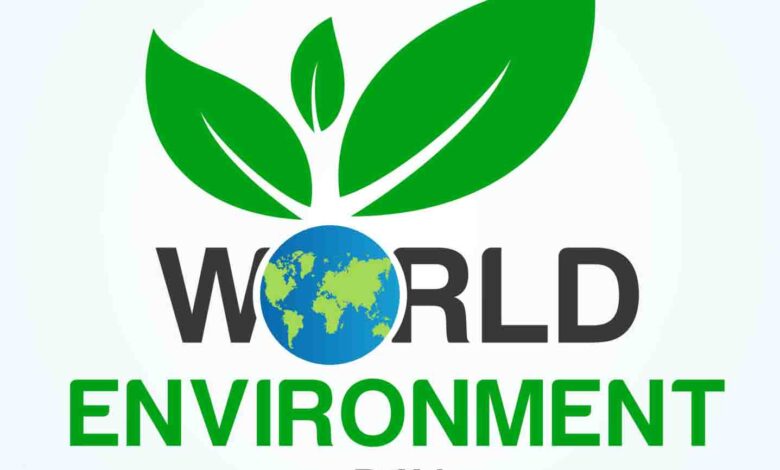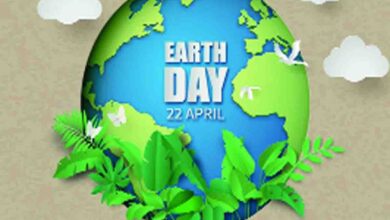GUEST COLUMN : Combating the creeping death on our land

 Vir Singh
Vir Singh
World Environment Day this year was focused on the theme ‘Land Restoration, Stopping Desertification and Building Drought Resilience’. We may note here that the 16th session of the Conference of the Parties (COP) to the United Nations Convention to Combat Desertification (UNCCD) is slated to take place in Riyadh from December 2 to 13, 2024. Against the backdrop of these significant events, the world is called to recognise the pressing need for action in safeguarding our land and combatting the challenges posed by desertification and drought in the face of climate change.
The theme for World Environment Day 2024 served as a poignant reminder of the critical issues confronting our planet’s landscapes. Desertification, land degradation and drought pose serious threats to ecosystems, biodiversity and livelihoods, making it imperative to adopt ecologically sound land management practices. With each passing year, the urgency to address these challenges becomes more apparent, making us realise the importance of collective efforts to mitigate their impact.
World Environment Day serves as a global platform to galvanise action and foster collaboration among governments, organisations and individuals. This annual event led by the United Nations Environment Programme (UNEP) amplifies the voices advocating for environmental stewardship and values the interconnectedness of nations in addressing environmental challenges. Through awareness-raising activities, policy dialogues and community engagements, World Environment Day attempts to empower individuals to contribute to positive change and drive sustainable development.
With Saudi Arabia having assumed the role of host for World Environment Day 2024, the international community is poised to engage in meaningful discussions and forge partnerships aimed at advancing the agenda of land restoration, desertification mitigation, and drought resilience. The convergence of global leaders, experts, and activities in Riyadh presented a unique opportunity to chart a course towards a more sustainable future for our planet’s land resources.
Desertification stands as one of the most insidious threats to our planet’s land resources, silently encroaching upon ecosystems with high disrupting effects. Often referred to as the ‘creeping death on land,’ desertification poses profound challenges to sustainable development, exacerbating poverty, food insecurity and environmental degradation. As we confront the consequences of climate change and human activities, the urgency to address desertification has never been more pressing.
Desertification is not a sudden cataclysmic event but rather a gradual process of land degradation, characterised by the loss of vegetation, soil erosion, and depletion of water resources. It occurs in arid, semi-arid and dry sub-humid regions where climatic variations and unsustainable land management practices and urbanisation further contribute to the degradation of land, exacerbating the spread of desertification.
The consequences of desertification are far-reaching and multifaceted, affecting both natural and human systems. Ecosystems subject to desertification experience loss of biodiversity, diminished soil fertility and increased vulnerability to natural disasters such as droughts and wildfires. For communities dependent on these fragile ecosystems for their livelihoods, desertification leads to reduced agricultural productivity, water scarcity and displacement, perpetuating cycles of poverty and food insecurity.
In many regions around the world, desertification has become a harsh reality, threatening the livelihoods of millions of people and undermining efforts towards sustainable development. Africa, in particular, bears a significant burden, with vast stretches of land succumbing to desertification’s relentless advance. The Sahel region, stretching across the African continent, serves as a stark example of the devastating impact of desertification where once fertile lands have been transformed into arid wastelands, displacing communities and jeopardising food security.
However, amidst the grim realities of desertification, there exists hope and opportunity for action. Recognising the urgent need to combat desertification, the international community has rallied together to address the pressing challenge. The United Nations Convention to Combat Desertification (UNCCD), adopted in 1994, stands as a landmark agreement aimed at combating desertification and mitigating the effects of drought through sustainable land management practices.
At the heart of efforts to combat desertification lies the promotion of ecologically vibrant and sustainable land management practices that enhance soil health, restore vegetation cover and conserve water resources. Reforestation and afforestation initiatives play a crucial role in restoring degraded lands and mitigating desertification, providing essential habitat for wildlife and carbon sequestration benefits. Similarly, sustainable agricultural practices such as agroforestry, conservation agriculture and integrated water management contribute to improving soil fertility, enhancing resilience to drought and promoting food security.
Moreover, empowering local communities and fostering community-led initiatives are essential components of effective desertification mitigation strategies. By engaging local stakeholders, including indigenous communities and smallholder farmers, in decision-making processes and capacity-building activities, we can harness traditional knowledge and expertise to implement context-specific solutions that address the root cause of desertification.
In commemorating World Day to combat Desertification and Drought, observed on June 17 each year, let us reaffirm our commitment to combating desertification and restoring our planet’s precious land resources. By working together, across borders and sectors, we can halt the advance of desertification, protect vulnerable ecosystems and ensure a sustainable future for generations to come.
The battle against desertification is not one that can be won overnight, but with concerted effort, determination and innovation, we can turn the tide and reclaim our land from the creeping death. Now is the time to act decisively, for the sake of our planet, our communities and the countless species that call Earth home.
World Environment Day 2024 is an occasion for us to reaffirm our commitment to safeguarding the integrity of our land and preserving its natural beauty for generations to come. By embracing sustainable practices, fostering innovation and promoting inclusive collaboration, we can overcome the challenges of desertification, land degradation, and drought and pave the way for a healthier, more resilient planet. All nations need to stand united to sustain our land, protect our environment and secure a brighter future for all.
(The author is professor emeritus, environmental science, GB Pant University of Agriculture and Technology. Views expressed are personal)






